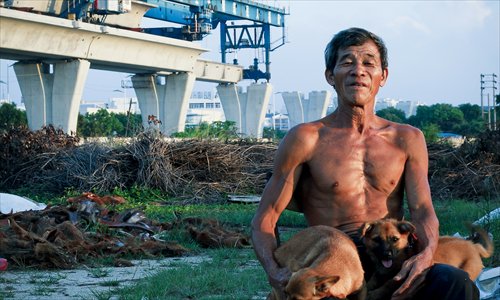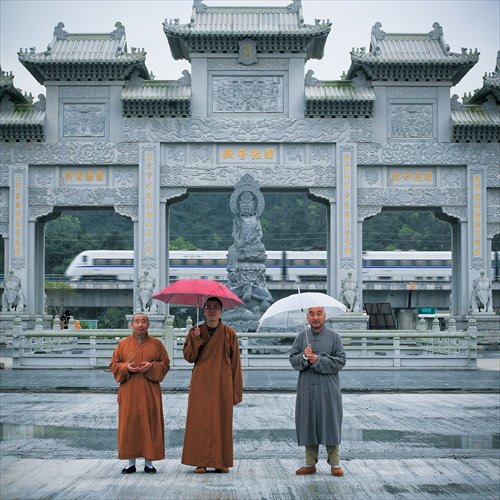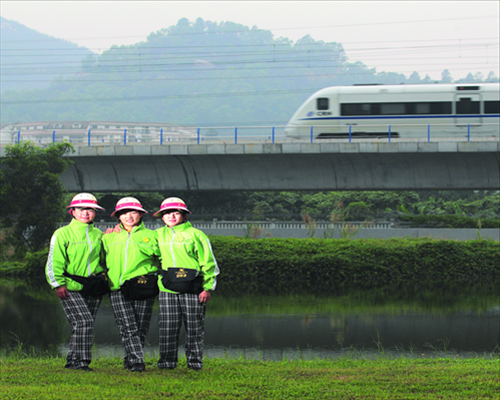Getting back on track

Deng Tingsheng sits amongst his dogs near the railway under construction. Photo: IC



Since construction of the urban railway from Guangzhou to Zhuhai began in 2006, the lives of people residing or working near the tracks have been transformed. Some have made the simple sacrifice of changing their daily routine, while others have had to uproot their entire lives, but a precious few are seeking to make a fast buck.
The railway came into service on December 31, 2012, winding its way over 140 kilometers, with 23 kilometers inside the city limits of Zhuhai, Guangdong Province.
For Achang, originally from Macao, the changes were not huge. A keen fisherman, he simply lost his favorite watering hole when the fish pond he used was filled in for the construction of the railway.
Wang Zhaohui and his wife Chen Yanping used to grow vegetables on rented land nearby, but it fell within the demarcation area of the railway line. They used to earn at most 6,000 yuan ($966) a year, with which they supported a son and two daughters. But now, their vegetable land has become a highway.
The effects were also obvious for Tang Yucai and his wife, who used to live on a boat on the river. Without bringing his children, Tang settled down in the area in 2000 to fish. As more and more land was set aside for the railway, they moved around the river several times, always in search for the fish that had moved on, if not died out.
However, it came to a point where so much of the river had been filled in that fish stocks dwindled past breaking point. Tang was forced to take a job at a factory in 2010, but the constraints were too much. He quit and returned to his boat, determined to live the unfettered life he desired at all costs.
However, the railway has made the commutes of city-dwellers more convenient. Expectant young people crowd around the tracks, taking photos outside the station in its days of use.
Others have benefited economically including those who own property along the railway.
Qin is one of those who has seen his real estate double in value since he bought it in September 2008.
As a way to alleviate traffic congestion, building urban railways has become a trend in China of late.
In 2012, urban railway lines were being built in 35 cities, show statistics from the 2012-2013 Report on Development of Urban Railway Transportation in China. In total, about 280 billion yuan ($45.08 billion) is expected to go toward more projects throughout 2013.
"Urban construction is like a double-edged sword and has different impacts on different people. Some are positive but the way other people live has to be abandoned because of the changes," Zhou Hongchun, a researcher with the Development Research Center of the State Council, told the Global Times.
Such hindrances are inevitable but most people benefit from the convenience brought by rapid economic development, he added. But for those whose lives have been affected because of urban construction, life will never be the same again as they morph from farmers to city-dwellers.
Global Times